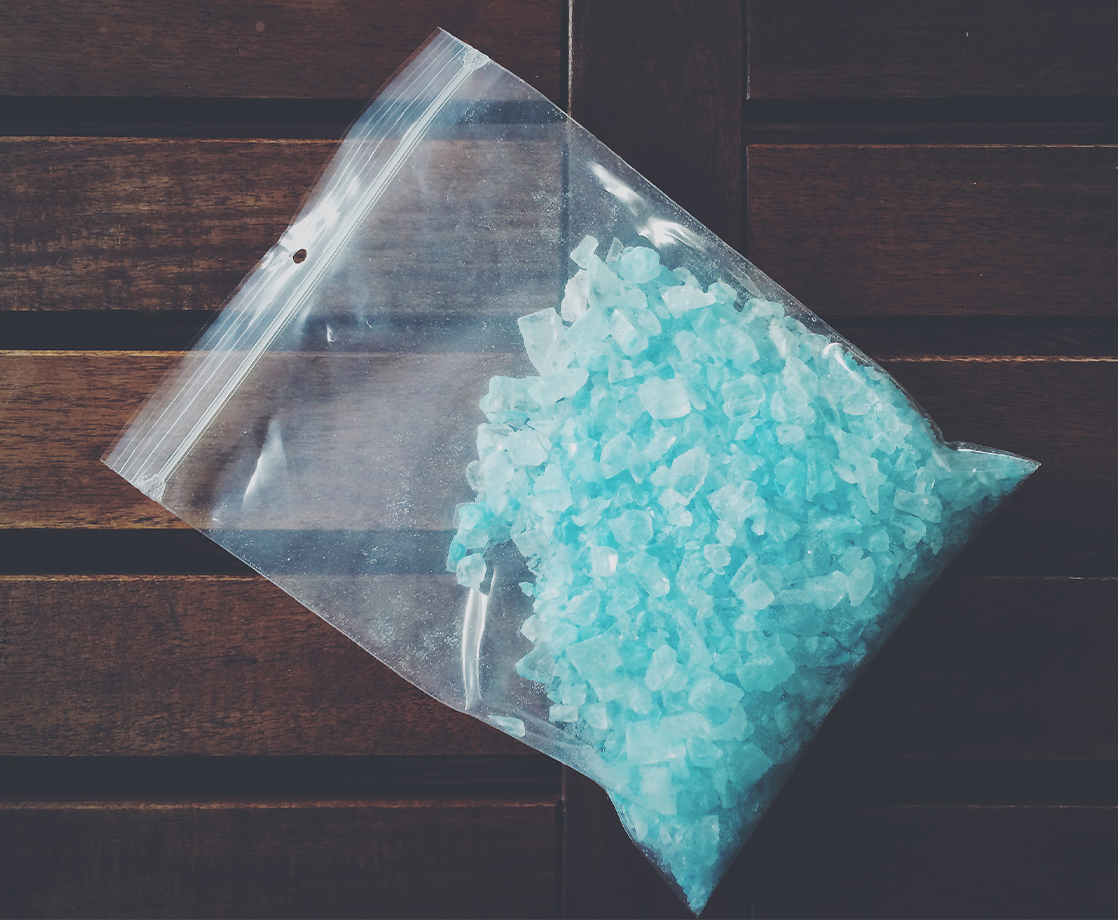Tennessee’s crime labs are now receiving so much seized meth that they’re processing more meth submissions these days than marijuana.
According to the Tennessee Bureau of Investigation, crime labs processed over 12,000 methamphetamine submissions in 2019. That same year, labs only received 9,795 weed submissions.
“We’re seeing all-time, new levels, high levels of meth,” District Attorney General Barry Staubus told Channel 11 News. “We’re getting vast amounts through gangs from Atlanta, bringing it here. As a result, we’re seeing an increase in overdoses, increased deaths. We’re seeing an increase in criminal activity, and increasing criminal charges relating to meth use.”
What gives with all the meth? The high numbers of meth submissions to crime labs, which increased over 300 percent in the past four years, is partially due to the opioid crisis plaguing the Volunteer State. While law enforcement shifted focus on combating heroin and opioid-based painkillers, meth operations ran amuck and relatively unchecked.
Additionally, cartels with massive meth supplies have flooded the illicit markets, forcing prices way down as drug purity has gone up. That translates to cheap, addictive meth being more lucrative — and more popular — than other illegal drugs hustled by organized crime, including cocaine, heroin, and cannabis.
Given all this rampant hard-drug abuse, Tennessee could benefit from offering its residents legal weed. Tennessee is one of the few remaining US states under full weed prohibition, meaning it hasn’t allowed recreational or medical marijuana in any capacity. The state passed an extremely restrictive CBD oil bill in 2015, but all CBD oil (which cannot contain significant amounts of THC) must be purchased out-of-state.
Soon, however, Tennessee voters will get to decide on a bill that would decriminalize marijuana across the state. If the bill passes, individual counties would be allowed to vote on legalizing weed within their districts, making it the first cannabis reform program of its kind in US history. And since we know that legalizing weed leads to lower opioid use, Tennessee could be ground-zero for a study that explores if legalizing weed curbs meth use, too.
Follow Randy Robinson on Twitter











